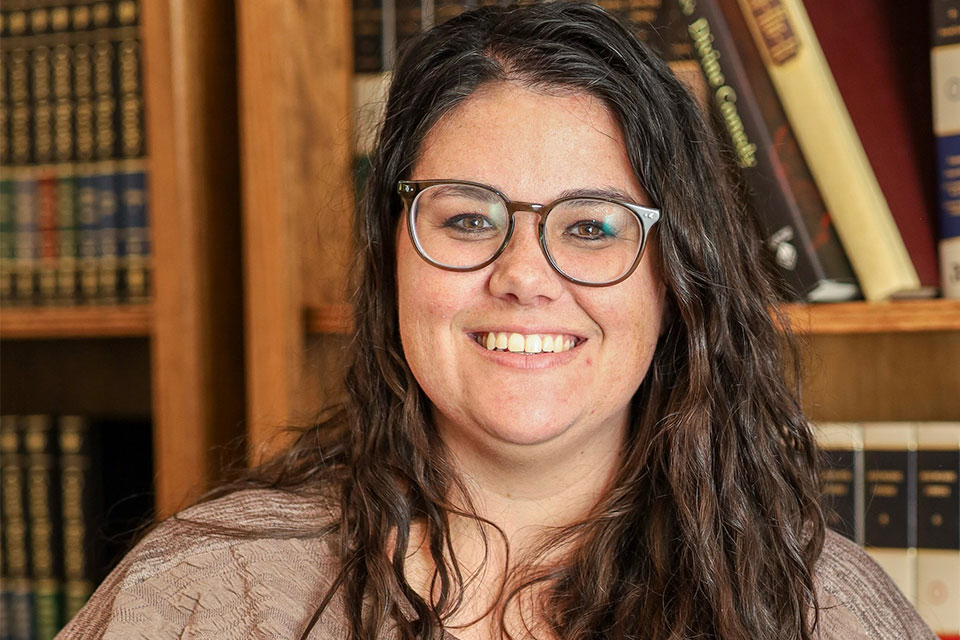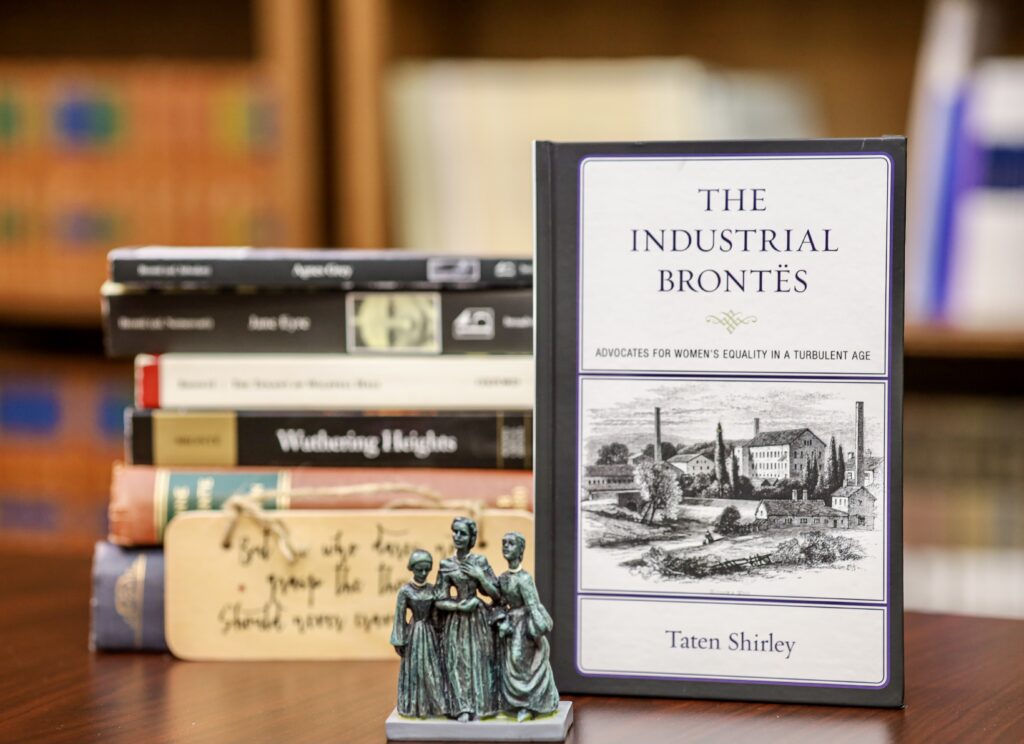Taten Shirley ’22 (PhD) writes nonfiction works on the Brontë sisters

Taten Shirley ’22 (PhD) has always had a strong passion for the humanities, which led her through years of higher education, culminating in a doctorate of humanities from Salve Regina. She recently published a book based on her dissertation exploring the famous Brontë sisters and women’s rights. She also has another Brontë-inspired anthology she’s editing on the horizon.
With research interests including the Brontë sisters, the Industrial Revolution, the Victorian Age and technology, Shirley was excited by Salve Regina’s Ph.D. in humanities program, as a central theme is understanding what it means to be a human in an age of advanced technology. Through the low-residency program, students complete four week-long residencies on campus.
While visiting campus, Shirley worked on her dissertation and sharpened many skills that helped her both professionally and personally. “A lot of the skills I developed at Salve were around the ability to advocate for humanities as a discipline,” she said. “I enjoyed a lot of readings that were focused on why the sciences need humanities – as well as why we need to look at the philosophical and humanities lenses when considering technology.”
The face-to-face interactions during the residencies stood out to Shirley, as it allowed her to form close relationships with classmates. She also enjoyed connecting with program faculty Dr. Sean O’Callaghan and Dr. Troy Catterson.
“Dr. Catterson had this great way of controlling the class discussion to where people were still expressing their opinions while he was teaching,” she said. “Dr. O’Callaghan was always incredibly supportive, reassuring and helpful in gathering resources.”
Exploring the Brontë sisters
In March, Lexington Books published “The Industrial Brontës: Advocates for Women’s Equality in a Turbulent Age,” which is based on Shirley’s dissertation. The book examines the interaction of humanities and technology through the eyes of the Brontë sisters during the Industrial Revolution.
“What I argue in my book is that the Brontë sisters took advantage of the many changes happening in the Industrial Revolution,” she said. “They argued for women’s rights.”
The book historically contextualizes all seven novels that the Brontë sisters wrote, including better known works like “Jane Eyre” and “Wuthering Heights” alongside lesser-known pieces like “Agnes Grey” and “The Tenant of Wildfell Hall.” Throughout her book, Shirley examines the ways the Brontë sisters challenged traditional ideas of marriage, called for equality in education and explored the worth of all human beings despite class differences. It also shows how important work was to women in creating better opportunities for them.
Shirley looks to further explore Anne, the youngest Brontë sister, in an essay that will be part of an anthology she’s editing – which she hopes will be on shelves in 2024. The anthology will focus on artistry in the life and work of Anne, an often overlooked Brontë sister who achieved much during her lifetime.
Wherever her future leads, Shirley is proud of the work she did in Salve Regina’s Ph.D. program and will remember the lessons she learned. “Salve’s integration of research with more comprehensive human condition disciplines have helped prepare me for my current job,” she said. “Salve’s mercy mission is emphasized in my teaching and research at Faulkner University, and I try to implement mercy into the services I offer my students both in and outside the classroom.”


